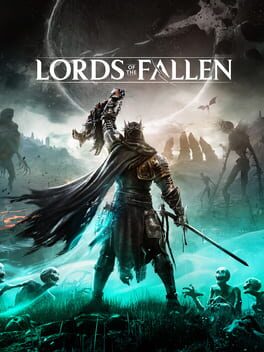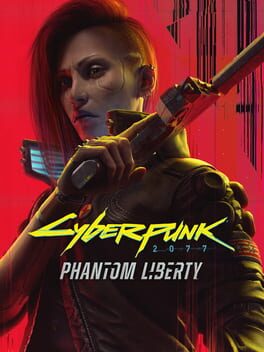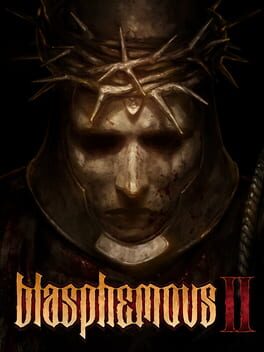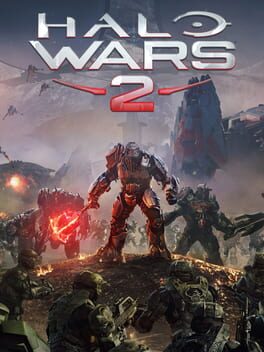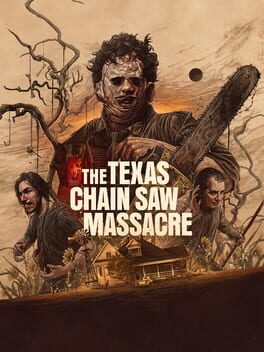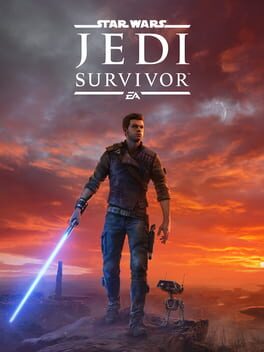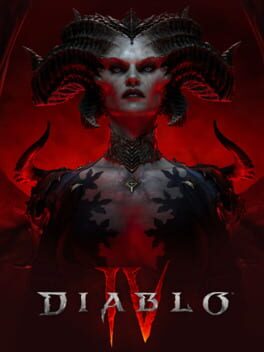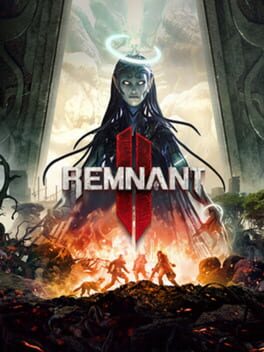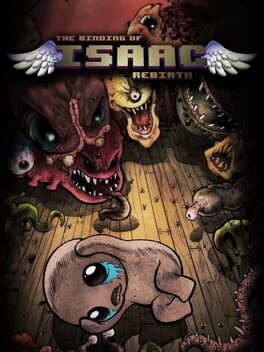JJDoom
2023
As a huge fan of modern From Software games, I am often searching for that next Souls-like hit. While Lords of the Fallen has a few interesting ideas, unfortunately it does not come close to the quality of its inspirations. One of the reasons for this is that it does not seem to learn from the mistakes of other genre titles by making some frustrating design decisions such as cutscenes playing every time you retry a boss or annoying 'runbacks' from sparse checkpoints.
Part of the problem here is the vestige seed system, which allows you to set up your own checkpoint locations sporadically throughout the world. While on the surface this seems like an innovative mechanic to force the player to be more considerate and strategic about placements, it often feels stingy with the amount it provides you and leads to vast stretches of levels where you cannot rest or recover. The game's areas often blend into one, which makes navigation and exploration difficult. Combine this with a terrible map and you have an experience that feels much more like you're fumbling around in the dark than actively learning the world layout.
One thing that all good souls-like games need is balance and Lords of the Fallen fails to execute on this. Enemies and bosses often deal far too much damage, with plenty of enemies with ranged attacked pestering you while you're trying to engage with multiple foes at a time. Many fans of this genre would argue that the bosses make these games and Lords of the Fallen again under-delivers on this front. They often have slow and telegraphed attacks, with only a few moves up their sleeves, leading to an experience that feels quite simple.
Despite some of the negative points I raised above, there are a number of things that Lords of the Fallen does well. The dual-world system is quite novel and allows for some awe-inspiring moments of discovery. The build variety is also incredibly satisfying, with many different armor sets, weapons and spells. The combat feels decent and there are a decent variety of moves, with throwable being particularly well implemented. Visually, I find the game to be a mixed bag at times but the lighting and grand vistas are stunning.
Overall, Lords of the Fallen is an improvement over its predecessor but it still feels like a missed opportunity to cement its place as a genre great.
Part of the problem here is the vestige seed system, which allows you to set up your own checkpoint locations sporadically throughout the world. While on the surface this seems like an innovative mechanic to force the player to be more considerate and strategic about placements, it often feels stingy with the amount it provides you and leads to vast stretches of levels where you cannot rest or recover. The game's areas often blend into one, which makes navigation and exploration difficult. Combine this with a terrible map and you have an experience that feels much more like you're fumbling around in the dark than actively learning the world layout.
One thing that all good souls-like games need is balance and Lords of the Fallen fails to execute on this. Enemies and bosses often deal far too much damage, with plenty of enemies with ranged attacked pestering you while you're trying to engage with multiple foes at a time. Many fans of this genre would argue that the bosses make these games and Lords of the Fallen again under-delivers on this front. They often have slow and telegraphed attacks, with only a few moves up their sleeves, leading to an experience that feels quite simple.
Despite some of the negative points I raised above, there are a number of things that Lords of the Fallen does well. The dual-world system is quite novel and allows for some awe-inspiring moments of discovery. The build variety is also incredibly satisfying, with many different armor sets, weapons and spells. The combat feels decent and there are a decent variety of moves, with throwable being particularly well implemented. Visually, I find the game to be a mixed bag at times but the lighting and grand vistas are stunning.
Overall, Lords of the Fallen is an improvement over its predecessor but it still feels like a missed opportunity to cement its place as a genre great.
2023
2023
As a diehard FromSoftware fan, I was definitely skeptical going into Lies of P. Miraculously this relatively unknown South Korean studio has delivered the best souls-like outside of FromSoft. Crafting unique weapons to take on a large variety of puppet, human and bestial enemies alike was a blast. Even though I have beat every Souls game, I found Lies of P to be incredibly difficult at times mostly due to hard-hitting mini-bosses and punishing main bosses. With an intriguing story and beautiful visuals to top things off, Lies of P is an absolute must-play for fans of the genre.
2023
[SPOILER-FREE REVIEW AFTER 100+ HOURS]
As a long-time Bethesda fan, the lead up and anticipation for this game was almost unmatched for me. Firing up the game for the first time was incredibly exciting, however there is no question that the game fails to blow you away right out of the gate. Starting off in the mine, it was immediately clear that Starfield is lightyears ahead of Bethesda's previous titles in terms of visuals and fidelity, with an incredible lighting system that becomes instantly clear as you walk through the game's opening area. The most disappointing aspect of the opening hours for me is the lack of a 'step out' moment that people have come to expect from titles by this studio. Game director Todd Howard earlier referenced the fact that the game has two of these moments but stepping out onto a planet's surface or launching into orbit for the first time don't have the level of impact that something like Fallout 3's vault exit did. Saying all of that, there is an initial level of intrigue surrounding the artifacts that the main story centers around which kept driving me forward to complete the main missions.
As you start ticking off these main missions, the game opens up massively by breadcrumbing the player to different cities, systems and orbital locations. They are all incredibly varied, from the cyberpunk-esque pleasure city of Neon to the rugged Western inspired locale of Akila City.
The main story itself was set up nicely to deliver a classic science fiction tale but ultimately ended up falling a little flat for me. There are still some incredible and memorable missions throughout that story but some of the big reveal moments didn't really live up to the lofty hopes that I had for the plot. However, like every Bethesda Game Studios title before it, Starfield ultimately shines through its faction quests and side content. Whether you are committing corporate espionage, hunting treasure with space pirates or investigating a mysterious alien threat, Starfield delivers some excellent experiences throughout the settled systems.
The gameplay that you experience while tackling all of this is Bethesda's best to date, with snappy gunplay, faster movement speeds and some other exciting features that I won't spoil here. Landing on a distant moon and discovering that it has a different gravitational pull to your last location is a delight as you stride, jump and boost-pack your way across its surface. How you traverse between these planets and systems however is perhaps my greatest criticism of the game. The loop consists of getting into your ship, taking off into orbit and then fast-travelling to another system before opening your starmap and selecting a landing location. After you've done this, you'll watch a short cutscene of your ship landing on the surface, giving you a panoramic view of the area. Despite some of the visual spectacle you can experience here, everything just feels a little too slow and tedious. At times you can experience five different loading screens just to go from one planet to another, which is not a clever and engaging way to implement this travel system. This brings me to a more general complaint I have with the game which is that everything just feels very segmented and isolated, leading to an experience that regularly breaks your immersion with its disjointed game-world.
Due to this design choice, the way that you explore and discover all that Starfield has to offer is different to other open-world games. Bethesda realised this too and were quite smart about how they introduce players to side content along the way. You'll be walking through a city and overhear a guard reference something interesting, which adds a quest or activity to your mission log. Giving you these narrative strings that you can choose to pull on is a clever way to re-introduce that feeling of stumbling across a new town in Skyrim or encountering a quirky NPC in the wasteland of Fallout, even if it is not quite as satisfying overall. Another inspired way that Bethesda has filled some of these voids between main content is through emergent events. You will regularly encounter other ships in space which will hail you to engage in conversation or battle, leading to a galaxy that feels more alive and unpredictable. Alternatively, you may be traversing a deserted planet and an enemy ship will land on the horizon, giving you the opportunity to fight some spacers and perhaps even steal their ship.
Speaking of the ships, the space combat is surprisingly good, with smooth gameplay and tight controls. The really impressive feature is the ship-builder, where you can customise your vessel to your heart's content. This allows you to dynamically alter your ships speed, combat capabilities and cargo limit as you see fit, which does have an impact on gameplay.
The other gameplay mechanic for more creatively-minded players is of course the outpost system. Much like Fallout 4 or even 76, players can create a number of outposts scattered throughout the settled systems. You will need to invest in your science skill tree to fully unlock the potential here, but there is a lot you can do to outfit a unique home among the stars. If you are so inclined, you can even set up automated mining or extraction mechanisms which can be linked with your other outposts to create your own industrial empire, although it is not quite clear to my why you would do that outside of some extra credits, which are not scarce as you progress through the game.
In terms of the skill tree and perk system, it is somewhat of a mix between Fallout and Skyrim as you will need to put your skills to use in order to unlock the next level of each perk you select. This is a rewarding system overall, although I do think some of the perks will end up being seen as mostly useless for the majority of players. There is a new dialogue system in play here, with a persuade option that will require you to achieve a certain number of points before the NPC you're talking to is convinced. It serves its purpose well enough but lacks the depth of previous titles.
This brings me to a more general complaint that Starfield is not enough of a role-playing experience and ends up being a more action-oriented title. It is an improvement over Fallout 4 in this aspect but your choice of background matters very little to the plot and does not influence dialogue options nearly as much as I'd like it to. Another frustration is that there are nowhere near enough unique weapons or armor sets in the game, with everything feeling like a variation of a base model. This is something that they didn't address from Fallout 4, since they have kept the focus on modding equipment to make it your own rather than presenting you with rare, unique items. There is choice and consequence here in the quests but ultimately the ending does not feel majorly influenced by your decisions throughout the game which is a real disappointment.
Starfield is a strange one to review because despite all of its glaring faults, I still had an incredible time experiencing it. From being genuinely awestruck at the planetary vistas to staying up late at night for 'just one quest', it was another classic Bethesda Game Studios obsession for me. The studio recently stated that they will continue to support the game for years to come and that is extremely exciting, since the possibilities are quite literally endless. I would like to see a DLC focused on the mysterious religious faction House Va'ruun since they were tragically underused here. There is also a history of mechs in Starfield's universe, so an expansion where you can build and fight with your own weaponised suit would fit nicely into the lore and gameplay. I just hope that now that Bethesda has their best performing game with their most refined combat yet, they continue to build on the role-playing elements of the title.
Whatever BGS chooses to do with their infinite canvas of the cosmos, I will return time and time again to venture out... into the Starfield.
As a long-time Bethesda fan, the lead up and anticipation for this game was almost unmatched for me. Firing up the game for the first time was incredibly exciting, however there is no question that the game fails to blow you away right out of the gate. Starting off in the mine, it was immediately clear that Starfield is lightyears ahead of Bethesda's previous titles in terms of visuals and fidelity, with an incredible lighting system that becomes instantly clear as you walk through the game's opening area. The most disappointing aspect of the opening hours for me is the lack of a 'step out' moment that people have come to expect from titles by this studio. Game director Todd Howard earlier referenced the fact that the game has two of these moments but stepping out onto a planet's surface or launching into orbit for the first time don't have the level of impact that something like Fallout 3's vault exit did. Saying all of that, there is an initial level of intrigue surrounding the artifacts that the main story centers around which kept driving me forward to complete the main missions.
As you start ticking off these main missions, the game opens up massively by breadcrumbing the player to different cities, systems and orbital locations. They are all incredibly varied, from the cyberpunk-esque pleasure city of Neon to the rugged Western inspired locale of Akila City.
The main story itself was set up nicely to deliver a classic science fiction tale but ultimately ended up falling a little flat for me. There are still some incredible and memorable missions throughout that story but some of the big reveal moments didn't really live up to the lofty hopes that I had for the plot. However, like every Bethesda Game Studios title before it, Starfield ultimately shines through its faction quests and side content. Whether you are committing corporate espionage, hunting treasure with space pirates or investigating a mysterious alien threat, Starfield delivers some excellent experiences throughout the settled systems.
The gameplay that you experience while tackling all of this is Bethesda's best to date, with snappy gunplay, faster movement speeds and some other exciting features that I won't spoil here. Landing on a distant moon and discovering that it has a different gravitational pull to your last location is a delight as you stride, jump and boost-pack your way across its surface. How you traverse between these planets and systems however is perhaps my greatest criticism of the game. The loop consists of getting into your ship, taking off into orbit and then fast-travelling to another system before opening your starmap and selecting a landing location. After you've done this, you'll watch a short cutscene of your ship landing on the surface, giving you a panoramic view of the area. Despite some of the visual spectacle you can experience here, everything just feels a little too slow and tedious. At times you can experience five different loading screens just to go from one planet to another, which is not a clever and engaging way to implement this travel system. This brings me to a more general complaint I have with the game which is that everything just feels very segmented and isolated, leading to an experience that regularly breaks your immersion with its disjointed game-world.
Due to this design choice, the way that you explore and discover all that Starfield has to offer is different to other open-world games. Bethesda realised this too and were quite smart about how they introduce players to side content along the way. You'll be walking through a city and overhear a guard reference something interesting, which adds a quest or activity to your mission log. Giving you these narrative strings that you can choose to pull on is a clever way to re-introduce that feeling of stumbling across a new town in Skyrim or encountering a quirky NPC in the wasteland of Fallout, even if it is not quite as satisfying overall. Another inspired way that Bethesda has filled some of these voids between main content is through emergent events. You will regularly encounter other ships in space which will hail you to engage in conversation or battle, leading to a galaxy that feels more alive and unpredictable. Alternatively, you may be traversing a deserted planet and an enemy ship will land on the horizon, giving you the opportunity to fight some spacers and perhaps even steal their ship.
Speaking of the ships, the space combat is surprisingly good, with smooth gameplay and tight controls. The really impressive feature is the ship-builder, where you can customise your vessel to your heart's content. This allows you to dynamically alter your ships speed, combat capabilities and cargo limit as you see fit, which does have an impact on gameplay.
The other gameplay mechanic for more creatively-minded players is of course the outpost system. Much like Fallout 4 or even 76, players can create a number of outposts scattered throughout the settled systems. You will need to invest in your science skill tree to fully unlock the potential here, but there is a lot you can do to outfit a unique home among the stars. If you are so inclined, you can even set up automated mining or extraction mechanisms which can be linked with your other outposts to create your own industrial empire, although it is not quite clear to my why you would do that outside of some extra credits, which are not scarce as you progress through the game.
In terms of the skill tree and perk system, it is somewhat of a mix between Fallout and Skyrim as you will need to put your skills to use in order to unlock the next level of each perk you select. This is a rewarding system overall, although I do think some of the perks will end up being seen as mostly useless for the majority of players. There is a new dialogue system in play here, with a persuade option that will require you to achieve a certain number of points before the NPC you're talking to is convinced. It serves its purpose well enough but lacks the depth of previous titles.
This brings me to a more general complaint that Starfield is not enough of a role-playing experience and ends up being a more action-oriented title. It is an improvement over Fallout 4 in this aspect but your choice of background matters very little to the plot and does not influence dialogue options nearly as much as I'd like it to. Another frustration is that there are nowhere near enough unique weapons or armor sets in the game, with everything feeling like a variation of a base model. This is something that they didn't address from Fallout 4, since they have kept the focus on modding equipment to make it your own rather than presenting you with rare, unique items. There is choice and consequence here in the quests but ultimately the ending does not feel majorly influenced by your decisions throughout the game which is a real disappointment.
Starfield is a strange one to review because despite all of its glaring faults, I still had an incredible time experiencing it. From being genuinely awestruck at the planetary vistas to staying up late at night for 'just one quest', it was another classic Bethesda Game Studios obsession for me. The studio recently stated that they will continue to support the game for years to come and that is extremely exciting, since the possibilities are quite literally endless. I would like to see a DLC focused on the mysterious religious faction House Va'ruun since they were tragically underused here. There is also a history of mechs in Starfield's universe, so an expansion where you can build and fight with your own weaponised suit would fit nicely into the lore and gameplay. I just hope that now that Bethesda has their best performing game with their most refined combat yet, they continue to build on the role-playing elements of the title.
Whatever BGS chooses to do with their infinite canvas of the cosmos, I will return time and time again to venture out... into the Starfield.
2023
After playing through Blasphemous for the first time earlier this year, I was excited to see how the sequel would deliver some much-needed improvements. I am happy to say that the team here delivered with the excellent prayer system, revitalised animations and more fluid movement abilities. Despite that, there are some drawbacks such as annoying challenge rooms, a complete lack of direction at times and some poor boss design. Overall a better game than the first, but not quite the perfect realisation of the vision.
2017
I have played about 10 hours or so of The Texas Chainsaw Massacre and while it is certainly fun at times, there is no denying that it contains too many bugs and too little content. Hopefully the game is supported with new maps, victims, family members and bug fixes, as well as much needed balancing updates.
2023
2023
I really wanted to love Remnant II like I did with the first game but this souls-like feels a little... soul-less. The procedurally generated levels and layouts were novel in the first outing but this time around it isn't enough to carry the game and leads to level arrangements that feel confusing, slapped together and dull.
2022
2021
